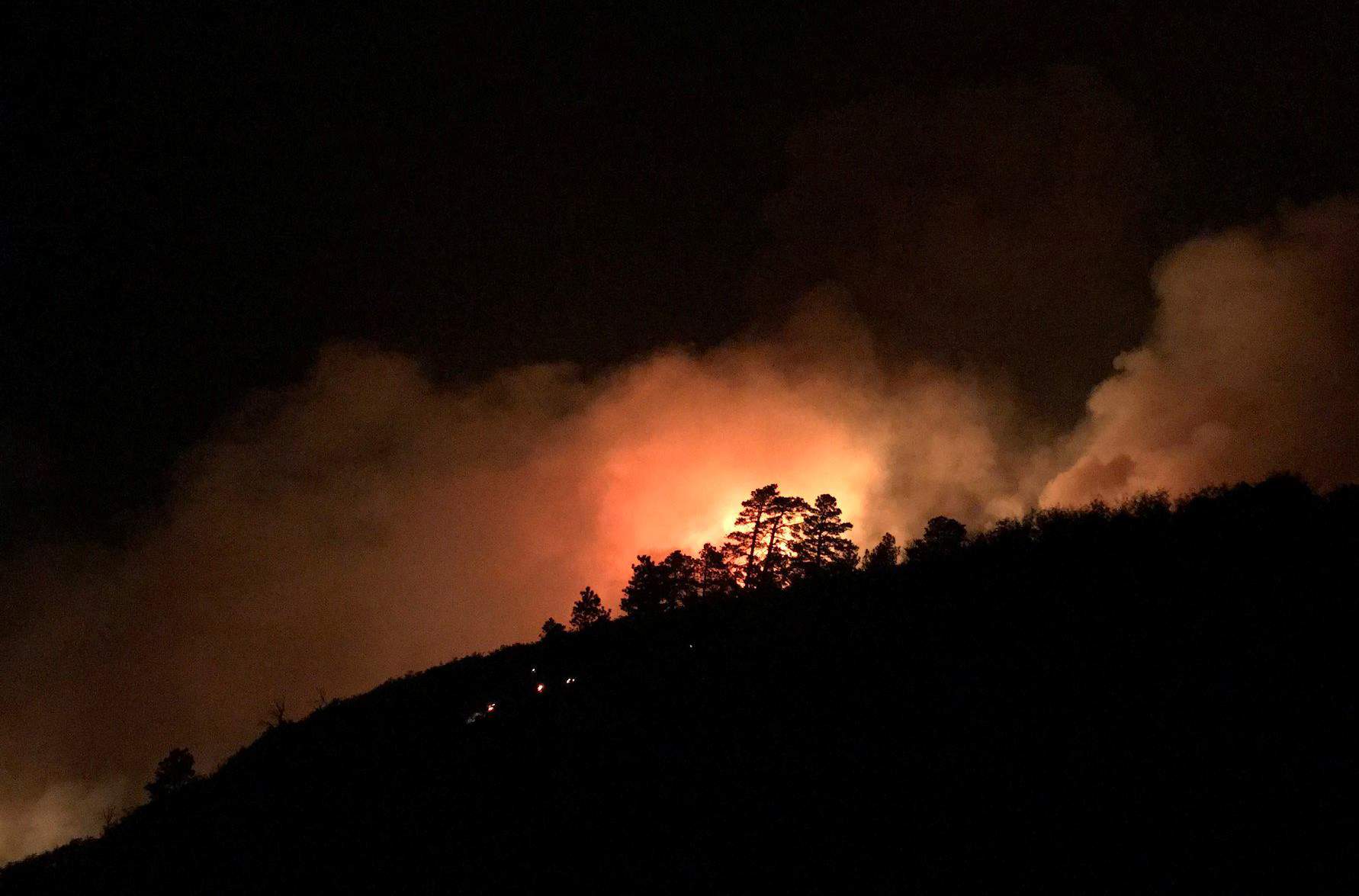
20 Aug “Hothouse Earth”: 2018, The Year Climate Change Really Hit?
Out of the fire ravaging Southern California and even closer to home, comes a cinder of hope. An article by Jessica Corbett in Common Dreams earlier this month suggests that despite the resistance from the White House, those in the know think 2018 will prove to be the year Americans embrace the fact global warming is caused by human activity.

As of Saturday, August 18, the Bull Draw Fire northwest of Nucla finally began to slow as weather favored firefighters. But as of that date, the damage covered over 28,000 acres. Courtesy, The Durango Herald.
Amid a flurry of “breathless headlines” about warnings in a new study that outlines a possible “Hothouse Earth” scenario, one co-author optimistically expressed his belief that “people will look back on 2018 as the year when climate reality hit.”
In an interview with the Guardian on Friday, Stockholm Resilience Center executive director Johan Rockström declared, “This is the moment when people start to realize that global warming is not a problem for future generations, but for us now.” Rockström’s study has received an “unprecedented” amount of global attention in the past week—270,000 downloads and counting.
“Published in the Proceedings of the National Academy of Sciences, the new study, while not conclusive in its findings, warns that humanity may be just 1°C away from creating a series of dynamic feedback loops that could push the world into a climate scenario not seen since the dawn of the Helocene Period, nearly 12,000 years ago,” Common Dreams reported last week.
This domino effect of feedbacks loops, the report explains, would pose “severe risks for health, economies, political stability, and ultimately, the habitability of the planet for humans.” Though such warnings are chilling, the report authors and climate experts pointed out a major takeaway from the study that much reporting on it failed to highlight: that there is still time for humanity to act.
“Yes, the prospect of runaway climate change is terrifying. But this dead world is not our destiny. It’s entirely avoidable,” meteorologist Eric Holthaus wrote for Grist this week. “As the authors of the paper have argued in response to the coverage, implying otherwise is the same as giving up just as the fight gets tough.”
Investigative journalist Antonia Juhasz, known for her deep dives on the oil industry, spoke with another co-author of the report, University of Arizona professor Diana Liverman, about actions the international community can take right now to address the climate crisis.
This domino effect of feedbacks loops, the report explains, would pose “severe risks for health, economies, political stability, and ultimately, the habitability of the planet for humans.” Though such warnings are chilling, the report authors and climate experts pointed out a major takeaway from the study that much reporting on it failed to highlight: that there is still time for humanity to act.
“Yes, the prospect of runaway climate change is terrifying. But this dead world is not our destiny. It’s entirely avoidable,” meteorologist Eric Holthaus wrote for Grist this week. “As the authors of the paper have argued in response to the coverage, implying otherwise is the same as giving up just as the fight gets tough.”
Investigative journalist Antonia Juhasz, known for her deep dives on the oil industry, spoke with another co-author of the report, University of Arizona professor Diana Liverman, about actions the international community can take right now to address the climate crisis.
“Collective human action is required to steer the Earth System away from a potential threshold and stabilize it in a habitable interglacial-like state,” the report’s abstract declares. “Such action entails stewardship of the entire Earth System—biosphere, climate, and societies—and could include decarbonization of the global economy, enhancement of biosphere carbon sinks, behavioral changes, technological innovations, new governance arrangements, and transformed social values.”
Rockström told the Guardian that he is concerned about the growing gap between scientists warnings’ and most politicians’ docile statements and actions, noting that “politicians prefer small problems that they can solve and get credit for. They don’t like big problems that, even if they succeed, leave the rewards for their successors.”
However, Rockström added, “once you pile up public pressure, politicians find it hard to avoid taking responsibility…”


Sorry, the comment form is closed at this time.